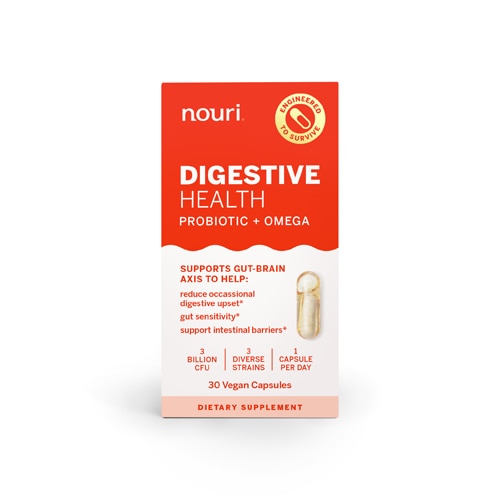[vc_row][vc_column][vc_column_text]The autoimmune protocol diet can be a godsend to people who suffer from autoimmune conditions.
This diet plan aims to reduce inflammation in people with autoimmune conditions by eliminating and then reintroducing
foods that could be triggering inflammation. This can result in inflammatory foods being cut from your diet and
non-inflammatory foods remaining in your diet.

Autoimmune disorders that might be alleviated with help from AIP diet include:
- Irritable bowel syndrome
- Crohn’s disease
- Ulcerative colitis
- Celiac disease
- Multiple sclerosis
- Psoriatic arthritis
- Rheumatoid arthritis
Keep in mind that some folks hail the diet, while others question its effectiveness. So don’t put your full faith in the diet being able to reduce your autoimmune symptoms.
What are autoimmune diseases?
Autoimmune diseases develop when the immune system mistakenly attacks healthy tissues in the body, leading to chronic inflammation and damage, according to American Fitness Professionals and Associates (AFPA).
There are
more than 80 autoimmune conditions, and they can affect almost any part of your body, the National Library of Medicine says. It’s unclear what causes autoimmune disorders.
Millions of Americans have autoimmune diseases, with women being afflicted more often than men.
How does the AIP diet work?
By eliminating foods such as dairy, grains, legumes, nightshade vegetables, processed foods and refined sugars, the AIP diet erases common triggers of inflammation and helps calm the immune system, says AFPA. The decrease in inflammation can ease symptoms such as digestive issues, fatigue and joint pain.
What are the stages of the AIP diet?
The AIP diet features three stages: elimination, reintroduction and maintenance.
1. Elimination
During this first phase, which can last four weeks to a few months, you
eliminate foods, additives and medications that you think are causing intestinal inflammation, creating an imbalanced gut microbiota or worsening an immune system response, according to the Cleveland Clinic.
The Cleveland Clinic suggests cutting those items from your diet all at once. Then, in the following four to six weeks, keep a close eye on your chronic inflammation to figure out which items might have been contributing to inflammation.
2. Reintroduction
Once your symptoms have improved significantly, you can launch the second phase of the diet, says the Cleveland Clinic.
During this phase, begin reintroducing the foods you eliminated during the first phase. The Cleveland Clinic says you should do this elimination one at a time over the course of five to seven days before reintroducing the next food
3. Maintenance
The third and final phase of the AIP diet collects the knowledge you’ve gained from the first two phases and merges them into a long-term maintenance plan, says the Cleveland Clinic.
“During this phase, there’s an emphasis on personalization and an increased focus on food diversity and diet flexibility. For example, certain foods might be triggering unwanted symptoms for you, so you’ll want to continue avoiding those foods in the long term (whereas someone else might not need to avoid those foods),” says the clinic.
How long does it take for the AIP diet to work?
Generally, it takes anywhere from 30 to 90 days for the AIP diet to work. The Paleo on the Go website notes that depending on your health status and health goals, you might want to
remain in the elimination period for anywhere from six weeks to two years.
Before embarking on the AIP diet, consult a health care provider or dietitian to make sure you’re taking a proper approach to it.
What role does food play in autoimmune diseases?
The Nourish website points out that many
foods have been tied to the development and progression of autoimmune disorders. Particular attention has been paid to the Western diet, which is high in refined sugar, red meat and ultra-processed foods, all of which contribute to inflammation.
But because there are dozens of autoimmune conditions, “making generalized nutrition recommendations can be challenging,” says Nourish.
Nourish stresses that “the relationship between diet and autoimmune diseases is complex and not fully understood. In addition, foods can impact each condition differently.”
In other words, there’s no consensus about the role that food plays in autoimmune diseases.
That being said, Nourish suggests avoiding these pro-inflammatory foods if you have an autoimmune disorder:
- Gluten
- Dairy
- Ultra-processed foods
- Alcohol
- Sugar
- Artificial sweeteners
- Red meat
- Fried foods
- Refined grains
- Nightshade vegetables
[/vc_column_text][/vc_column][/vc_row][vc_row][vc_column][vc_text_separator title="Featured Products" border_width="2"][vc_row_inner equal_height="yes" content_placement="middle" gap="35"][vc_column_inner width="1/3"][vc_single_image image="174313" img_size="full" alignment="center" onclick="custom_link" img_link_target="_blank" css=".vc_custom_1712962848124{padding-right: 7% !important;padding-left: 7% !important;}" link="https://www.vitacost.com/nbpure-digestive-enzyme-complex"][/vc_column_inner][vc_column_inner width="1/3"][vc_single_image image="174311" img_size="full" alignment="center" onclick="custom_link" img_link_target="_blank" css=".vc_custom_1712962869178{padding-right: 7% !important;padding-left: 7% !important;}" link="https://www.vitacost.com/carlson-inflammation-balance"][/vc_column_inner][vc_column_inner width="1/3"][vc_single_image image="174312" img_size="full" alignment="center" onclick="custom_link" img_link_target="_blank" css=".vc_custom_1712962890670{padding-right: 7% !important;padding-left: 7% !important;}" link="https://www.vitacost.com/source-naturals-lactase-digest-180-vegetarian-capsules"][/vc_column_inner][/vc_row_inner][/vc_column][/vc_row]
 Autoimmune disorders that might be alleviated with help from AIP diet include:
Autoimmune disorders that might be alleviated with help from AIP diet include:



